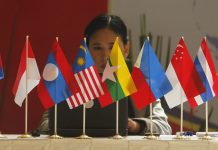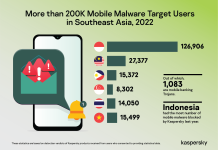By Datuk William Ng, on behalf of the Small and Medium Enterprises Association (SAMENTA)
27 June is World SME Day. In Malaysia, 26 June to 4 July is SME Week. In conjunction with both occasions, SAMENTA outlines our hopes and aspirations for the SME sector, which comprises 98.5 percent of all businesses in Malaysia and employs almost half of all working Malaysians.
From 19 to 23 June, SAMENTA conducted our Mid-Term Survey, and the result is far from heartening. Two out of three SMEs do not see any hope for a recovery in 2021, with 16 percent expecting their businesses to only recover in 2023.
The FMCO currently in force is particularly devastating to a majority of our SMEs. During MCO 1.0, many SMEs still have cash buffers to keep their businesses afloat. However, after over a year of disrupted business, SMEs are no longer in a position to survive on their own. Indeed, 30 percent of SMEs will run out of cash during this FMCO, and if the FMCO is extended, many of these will simply close down.
In November last year, SSM stated that 30,000 businesses closed down since the start of the COVID-19 pandemic. This data would most likely be 3 times more by now, given the MCO 2.0 and MCO 3.0, and including businesses that have ceased business without notifying SSM.
The World Bank in its latest Malaysia Economic Monitor has also affirmed the fact that our SMEs have less cash flow compared to regional peers.
The National Recovery Plan has largely been silent about our plans as a country to mitigate economic losses from the pandemic. More conspicuously, it is silent on our plans for a ‘recovery’ and how Malaysia can get back on the track that we are derailed from since the beginning of the pandemic.
Technology Adoption
At the top of our concern is the low technology adoption among Malaysian SMEs. Our Digital Adoption Index stands at 69 percent versus Singapore’s and Korea’s 87 and 86 percent respectively. Even more worrying, our business sub-index for digital adoption stood at 55 percent, lower than our regional neighbours such as Singapore (86 percent), Brunei (66 percent), Vietnam (59 percent), Philippines (57 percent) and Thailand (57 percent).
This is validated by the Global Entrepreneurship Index 2018, where our score of 9 percent under ‘Technology Absorption’ is among the lowest in the world.
It is important therefore that we continue to wean Malaysian SMEs off relatively ‘cheap’ labour, speed up automation and reliance on manpower, and improve the educational level of our next generation of entrepreneurs.
As a result of the pandemic, many of our SMEs have adopted rapidly to digitalization, and those who were not able or were reluctant to, were part of the casualty. But even as we grow our tech-savviness, our regional neighbours and competitors would also have grown theirs – and perhaps at a rate faster than ours.
We can always blame our SMEs for not being ready, but the reality is that our patronage economy has grown an entire generation of businesses that do not feel the need to compete globally.
The better integrated our SMEs are to the global market, the quicker the drive will be for us to digitalize. At the same time, don’t set the bar so high that our SMEs are discouraged from investing in technology. Stop talking about IR 4.0 when most of our SMEs are still keeping their records in manual ring files.
Moving forward, it is important that we allocate the right resources to push our SMEs to adopt technology through more accessible matching grants that covers businesses of all sizes and sectors; and across all stages of digitalization.
Support Local Businesses to Go Global
SME Corp’s slogans for the SME Week 2021 are ‘Sokong Lokal, Sokong PKS’ (support local, support SMEs) and ‘Mula Berdikit, Azam Melangit’ (start small and aim for the sky). This sums up the aspiration of our SMEs.
Many of the programmes launched in recent years by the various ministries are focused on driving SMEs to go global via both local and international online marketplaces. As more of our SMEs do so, we must also ensure we build our national brand globally and to prioritize marketplaces that support local businesses and not merely pushing products from lower cost countries to Malaysian consumers.
We should be building indigenous brands and local heroes, rather than training Malaysians to become mere middlemen and resellers of foreign, low value-added products. Indeed, in our fervour to globalise, we are allowing low-cost products with questionable quality to flood our market, to the detriment of our SMEs. We must be firmer in ensuring the large de-facto monopolistic marketplaces prioritise local SMEs.
We understand that we cannot close our border to international goods, but we must be firmer in our commitment to supporting local SMEs and brands. Don’t just give money to SMEs to list on marketplaces. Provide training and handholding in product development, branding and packaging, and marketing by matching SMEs that provide these services to SMEs who are producing products for the global market.
Urgent Need to Improve Productivity
According to Malaysia Productivity Corporation, Malaysia’s labour productivity dropped by 5.4 percent in 2020. Prior to the pandemic, our labour productivity grew a mere 2.1 percent, far behind our GDP growth of 4.3 percent in 2019. Our SMEs account for half of our employment, but a mere 31 percent of output.
This translates into low margins, and hence why many of our SMEs are collapsing amidst the pandemic, as well as our continued reliance on government handouts and patronage through GLCs.
The government is fully aware of these challenges. There is an urgent need to improve the productivity of our SMEs as a mean to protect our competitiveness.
SAMENTA is working closely with MPC to help raise the productivity level of our SMEs through a combination of benchmarking, digitalisation and transforming the mindset of SME owners.
We are hopeful that the government will continue to place more emphasis on capability and capacity building for our SMEs (as it has been through SME Corp), rather than short-term handouts (which is crucial during this pandemic, but should be wane off once the pandemic has ended).
Access to Talent
As indicated in our survey, during this pandemic, SMEs are severely cash-strapped. However, the key challenges of SMEs post-pandemic would be less of financing and more of our ability, or inability, to access world-class talents.
Ask any SME and they will tell you two things: our universities are not producing talents that are industry-ready, and top talents do not want to work for SMEs. This is not an area that is well-researched in the past, and hence there is not enough empirical data to justify intervention by the government.
A recent SME Employee Experience study conducted by SME Magazine and Willis Towers Watson has shown that contrary to popular notion, Malaysian SMEs are ahead of regional peers in employee engagement. This means that our SMEs are by and large ‘good employers’. Unfortunately, this has not translated into SMEs becoming preferred employers.
The weakness is both on the part of employer branding and HR practices among our SMEs, as well as a lack of focused programmes to help our SMEs to attract and retain talents. Malaysians naturally would prefer to work for larger companies that can afford higher salaries and better benefits. This is where we are hopeful that the government can provide short-term intervention in the form of fiscal incentive either directly to SME employers or to SME employees. This could be in the form of matching contribution for EPF, subsidies on HRDF contribution, and tax cuts for employee benefits and employer branding.
At the same time, SAMENTA is engaging with our higher education institutions to deliver job-ready graduates and to dispel the notion that SMEs are ‘inferior’ employers.
Conclusion
The government needs to be leading at this crucial period by providing a clear, realistic roadmap for our economy and by extension, our SMEs to recover from the pandemic and tap into opportunities in the new normal.
Our focus should go beyond re-opening of the economy to helping our SMEs gain lost ground and sprint ahead of our regional peers. As the saying goes, never waste a good crisis.
Datuk William Ng is chairman of policy and government relations at SAMENTA, who is also group publisher and editor-in-chief of SME Magazine.
























